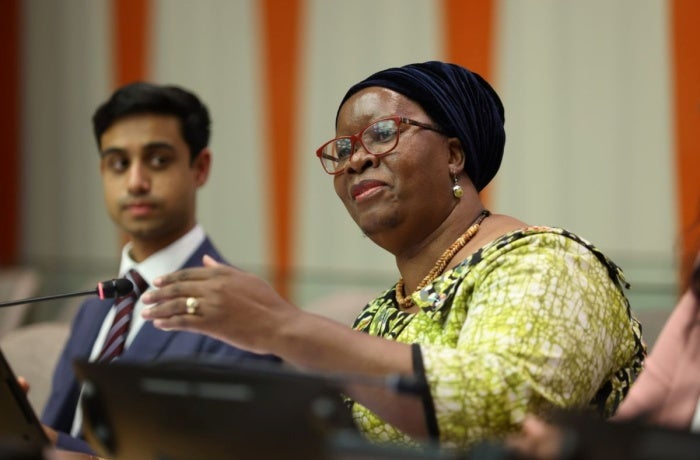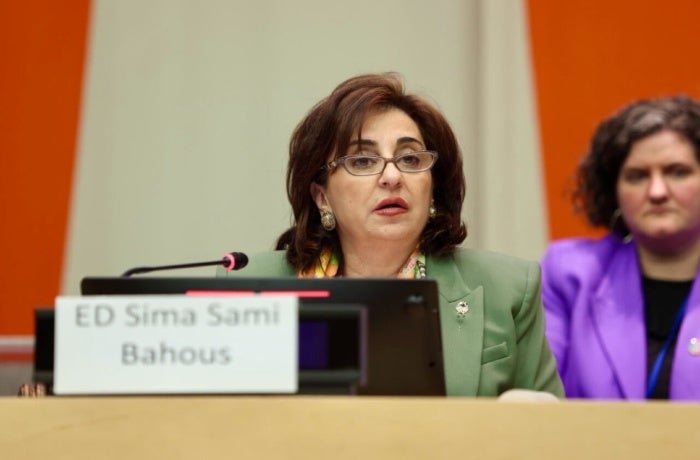Generation Equality leaders UN Women and IDLO call for centring survivors in gender-based violence response efforts
Survivors of gender-based violence face a myriad of challenges in pursuing justice and accessing other essential support services such as emergency health care and safe accommodation. Social norms and stereotyping that stigmatize or blame survivors, constraints within justice institutions and a general culture of impunity often stop women from reporting violence they have experienced and seeking the help they need.
Recent research conducted by the International Development Law Organization (IDLO) and the Global Women’s Institute at George Washington University on Survivor-Centred Justice for Gender-based Violence in Complex Situations highlights just how complex accessing justice can be for survivors in the midst of conflict, climate disasters and other humanitarian emergencies.
“The findings underline that measures need to be responsive to women’s specific needs, as well as relevant to contextual challenges, while firmly anchored in international human rights,” says IDLO Director-General Jan Beagle.
Almost one in three women globally have faced physical and/or sexual violence, mostly by an intimate partner, in their lifetime—a figure that does not include the many who have experienced sexual harassment. Recent global emergencies, crises and conflict, deepening inequalities and democratic backsliding have exacerbated drivers and risk factors. Since the start of the COVID-19 pandemic, almost half of all women reported that they or a woman they know has experienced a form of violence against women. violence against women.
The guidance on Safe Consultations with Survivors of Violence Against Women and Girls, released recently by UN Women and Global Rights for Women, with support from Australia’s Department of Foreign Affairs and Trade, provides practical steps, safety measures and actions that government agencies, civil society organizations and coordinating bodies can take to incorporate survivors’ voices into systemic reform efforts on ending violence against women.
With a focus on safety and ethical issues, the guidance provides advice on how to plan and conduct survivor consultations through individual interviews and focus group discussions, both in-person and remotely. It also explores how to provide support to survivors before, during and after consultations, and how best to review and utilize the information collected.
The guidance is ideal for those working across the health, social services, justice and policing sectors, as well as those facilitating cross-sector coordination. It will help improve the standard and delivery of essential services that meet the needs of diverse groups of women and girls, including those who are at higher risk of experiencing violence and discrimination.
As Åsa Regnér, Deputy Executive Director for Policy, Programme, Civil Society and Intergovernmental Support at UN Women, notes, “We should not make assumptions about survivors’ needs or experiences. Helping survivors to create pathways to a life free from violence will only be possible when they are heard, believed and included in all decision-making about their lives.”
Engaging survivors and survivors’ organizations in a meaningful way is firmly at the heart of UN Women’s work to address violence against women and girls. Together with sister agencies such as IDLO, UNDP, UNFPA, UNODC, WHO and civil society partners such as Global Rights for Women and NO MORE, UN Women has been supporting different sectors to implement a survivor-centred approach, including through the Generation Equality initiative and its Action Coalition on Gender-based Violence. These efforts have been strengthened through the development of strategic partnerships and programming, for example, on Essential Services, Safe Cities and Safe Public Spaces, Prevention, as well as through the Spotlight Initiative.









